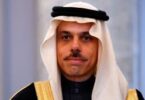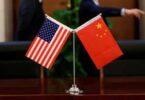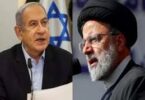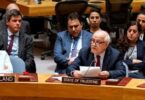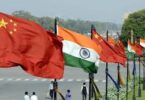Recently, the Pakistan Electronic Media Regulatory Authority (PEMRA) has banned broadcasting ‘live and recorded’ speeches and press conferences of former prime minister and Pakistan Tehreek-e-Insaf Chairman Imran Khan on all satellite TV channels with immediate effect. According to the Electronic Media Regulatory Watchdog, Chairman PTI is continuously leveling baseless allegations and spreading hate speech/statements against state institutions and their leadership which is not only prejudicial to the maintenance of law and order but is likely to disturb peace and tranquility in the society. The watchdog defended itself by saying that its action was in line with Article 19 of the Constitution of Pakistan and a judgment of the apex Court passed in Suo Moto Case, furthermore, Section 27(a) of the PEMRA Ordinance 2002 as amended by PEMRA (Amendment) Act 2007 also warrant a ban on Khan’s hateful speech against the government institutions, public office holders and opponents over mainstream media. In another action, PEMRA suspended the license of ARY News for violating instructions regarding airing Imran Khan’s speech issued earlier in the day.
The political environment of the country is at the boiling point due to hate speech, war-mongering and baseless propaganda of combatant political groups in the country. The civic disagreement had been shaped into a personal rivalry, and legal battle while both groups take shelter from their political influence to cancel their misdeeds and unnerve courts and adjudicators. Meanwhile, the politics of clash and malevolence badly hurt the nation in the past. This combative politics seriously undermined freedom of expression, and the right to peaceful assembly and reduced the space for positive criticism by the opponent, media, and civil society, while providing the government an opportunity to manipulate the situation in its favor in the name of public interest.
Historically, the use of administrative authority and media regulations agaisnt opponents is not a new phenomenon in Pakistan. Earlier, the PTI government banned speeches of PML-N Supremo Nawaz Sharif by using the same laws, and now the coalition government repaid the PTI with the same coin. Apparently, targeting opponents and media outlets through administrative laws in the current day hybrid world is not only a violation of civil liberties but also a counterproductive and failed strategy. Presently, social media is an all times facility to address and liaison with the party workers and the public, while the government will only earn ignominy and the ban will ultimately be reversed by the court in the coming days.
Surprisingly, after a long tussle with his opponents throughout the government and after his ouster from power, the former Prime Minister and PTI Chief has recently expressed his readiness to set the course for a dialogue and joint work with its political opponents, which is delayed but an encouraging and immensely needed step at this time. The state of Pakistan is embattled with multiple issues such as historic inflation, the energy crisis, the scourge of terrorism, and acute economic and financial depletion, while the unceasing political tussle remained at the forefront of making up for those upheavals. Currently, Pakistan needs national unity, Political and economic stability which could not be realized without dialogue and consensus on a charter of democracy across the political spectrum. As early as our leaders grasp this fact, and initiate a positive momentum, the bulk of the issues will resolve accordingly.


